Meeting Wyoming Challenges with Wyoming Solutions
Our major Wyoming impact areas include:
Foster Community & Economic Vitality
Empower Wyoming’s Future Leaders
Improve Health & Wellness
Protect Our Natural Resources
Produce Food, Fiber, & Energy
We fulfill our mission through cultivating partnerships in communities across Wyoming including: non profit organizations, government agencies, professional associations, community organizations, and advocacy organizations. We also rely on four internal teams who work collaboratively to help our Wyoming communities thrive:
4-H Youth Development
Agriculture & Natural Resources (ANR)
Community Vitality & Health (CVH)
Cent$ible Nutrition Program (CNP)
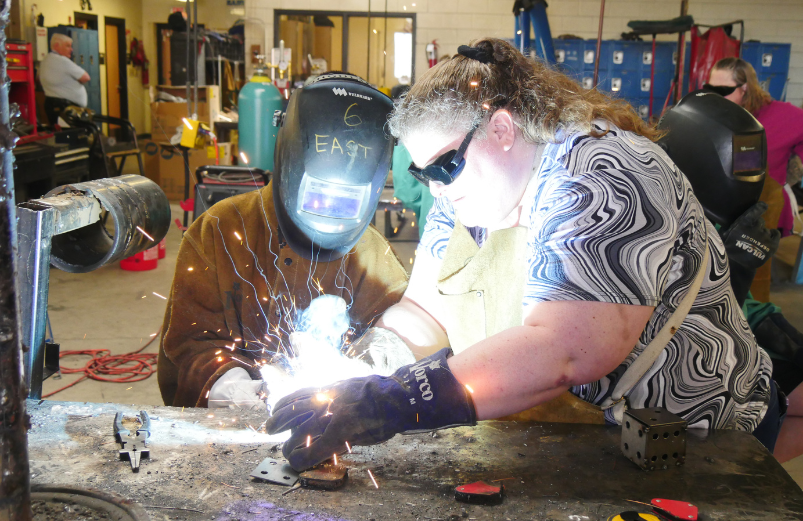
Impact Areas
Our impact areas touch lives across all the counties and communities of Wyoming.
Foster Community & Economic Vitality
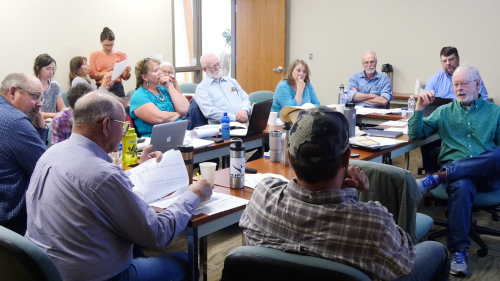
UW Extension understands that vibrant communities require both strong community collaborations and thriving individuals to make them work. That’s why Extension works to strengthen communities through sharing good governance practices and helping build vibrant civic organizations as well as providing individuals the resources they need to strengthen their lives and families.
As a trusted partner in counties across Wyoming, UW Extension delivers locally tailored solutions to meet community and economic development challenges across Wyoming. Our educators provide a range of resources and consultations to help entrepreneurs succeed in their new endeavors. Extension has recently partnered with UW’s Wyoming Outdoor Recreation, Tourism, & Hospitality (WORTH) Institute to hire a tourism educator, bringing new support to one of our state’s top three industries.
Extension also focuses on youth programming to help communities thrive. The Wyoming 4-H program empowers young people through hands-on career exploration and youth entrepreneurship opportunities, helping prepare the next generation of innovators and leaders.
On the community level, our educators offer opportunities to build relationships and learn about unique programs like Wyoming Walks and community leadership workshops across the state. These programs bring diverse community members together to learn about topics from local small businesses and entrepreneurship to local recreational opportunities and history. These programs offer any interested community members the chance to meet new people and strengthen human connections in an increasingly digital and distanced world.
Empowering Wyoming's Future Leaders
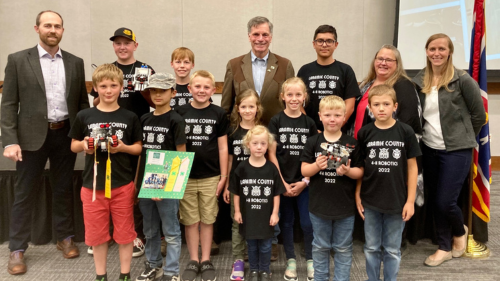
Like many rural areas across the West, Wyoming’s young people face unique challenges, often intensified by geographic isolation and limited access to support networks. Youth can feel disconnected, both emotionally and physically, from peers, mentors, and resources. Though technology can help overcome these challenges, it can also exacerbate some of them. The UW Extension 4-H program works to foster healthy relationships and support networks to help youth develop into confident, capable adults. With the support of caring 4-H volunteers, Wyoming youth explore their interests across more than 45 project areas, practice leadership and team building through local clubs, and engage in experiential learning tailored to their individual interests.
Wyoming 4-H is currently training its educators in the THRIVE model of youth development—a nationally recognized, research-informed framework created by leading land-grant universities. This ensures that Wyoming’s youth development efforts remain grounded in the latest best practices while staying locally responsive.
With dedicated educators and volunteers in every Wyoming county and on the Wind River Indian Reservation, the 4-H program responds to specific local youth development needs and crafts programming that helps youth overcome challenges around health, safety, and isolation. Confident young people who have built a robust network of relationships where they live are more likely to stay in Wyoming and become the next generation of engaged leaders.
To meet specific local needs, Wyoming 4-H offers a variety of targeted programs including:
After-school programs, often focused on communities that lack childcare services
Wyoming Virtual Career Night, an event designed to help youth explore a variety of careers with professionals across a wide range of fields
Teen leadership camps in communities throughout Wyoming
Improve Health & Wellness
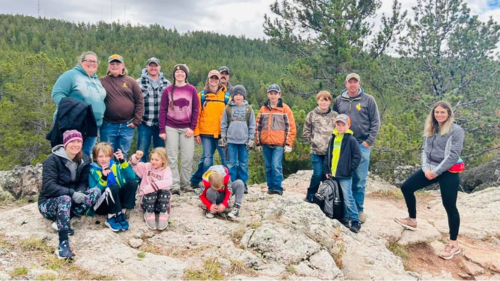
Many Wyoming residents and communities face challenges in accessing resources to improve health and wellness, including mental health. Due to Wyoming’s rural nature and large geographic area, it’s critical to build robust communities and strong support networks across the state.
UW Extension knows that in Wyoming we value our individualism but pride ourselves on helping friends and neighbors wherever there’s a need. Extension educators work at the community level to support both individual and collective wellness by offering:
Education on healthy eating and nutrition
Financial literacy and budgeting workshops
Group events that promote physical activity and social connection
Many of our educators have received training in bystander intervention and crisis support for those who may need help finding mental health resources in times of stress or personal crisis. To further strengthen this capacity, UW Extension recently added a mental health specialist to support statewide efforts and increase access to evidence-based wellness practices.
In addition, the Cent$ible Nutrition Program (CNP) plays a key role in supporting Wyoming families facing food insecurity. The CNP team helps individuals access and prepare healthy, affordable meals as well as providing educational resources for families with limited budgets.
The CNP team and others in Extension also help bring together food banks, community gardens, and other local organizations and partners, such as the Wyoming Hunger Initiative, to coordinate efforts, pool resources, and strengthen the local food system.
Together, these efforts support not only health and well-being—they also build stronger, more connected communities that can withstand the challenges of distance, economic strain, and social isolation.
Protect Our Natural Resources
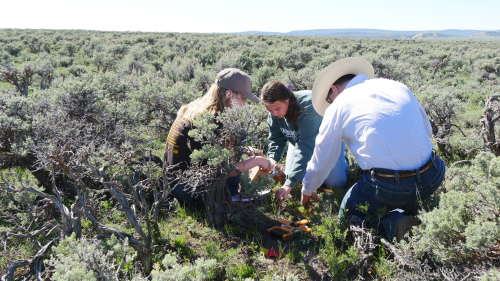
As Wyoming residents, we all share a deep connection to our natural resources and environment. Extension understands the complexity of managing these resources across a range of landscapes, interest groups, and desired outcomes. Our educators work with stakeholders across the state to address the resource challenges presented by our weather and climate to improve sustainability and achieve positive resource outcomes that bring multiple perspectives to the table.
At the direction of the Wyoming Governor’s Office, UW Extension educators partnered with the UW School of Energy Resources, UW Ruckelshaus Institute, and the Wyoming County Commissioners Association to host a series of public discussions on the BLM’s Rocks Spring’s Resource Management Plan. These forums offered a respectful, informed space for stakeholders to engage on a contentious issue impacting both livelihoods and landscapes. Extension’s facilitation role helped elevate dialogue and ensure voices from across Wyoming were heard.
Extension educators and specialists also offer pesticide safety education sessions across the state, ensuring applicators can safely and effectively manage plant and animal pests. These programs help Wyoming residents protect natural resources and maximize the efficiency of time and money spent on pest management.
In recent years, particularly since the COVID-19 pandemic, Wyoming has seen an influx of new rural small-acreage landowners taking advantage of remote work or retiring to live the “country life.” Our educators have responded by leading workshops, providing print and digital resources, and providing individual consultations to help new residents understand the challenges of climate, soils, plants (including weeds), and water that come with living in Wyoming. These efforts have empowered rural landowners—new and longtime alike—to feel more confident in their ability to manage their properties, protect natural resources, and achieve their land management goals.
Produce Food, Fiber & Energy
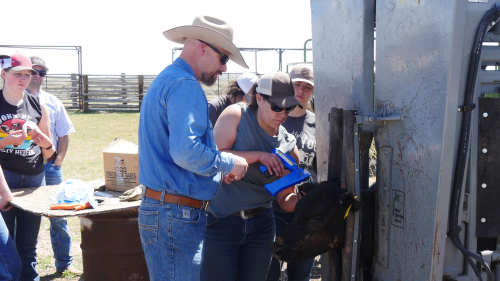
UW Extension plays a critical role in sustaining and advancing Wyoming’s agricultural industry. Extension helps address key challenges by working directly with local producers and industry partners across Wyoming.
To enhance economic viability and diversification, UW Extension offers training in:
Value-added agriculture
Agribusiness management
Alternative crop production
Programs such as Ag Legacy help producers improve profitability, plan for generational transition, and ensure long-term business continuity.
Water scarcity remains a pressing issue, and UW Extension supports water conservation and management through workshops, publications, and applied research related to irrigation efficiency, drought mitigation strategies, soil health, and more. Extension’s work with the State Engineer’s Office to host listening sessions and develop materials to facilitate management conversations across watersheds ensures that agricultural producers can make informed water-use decisions.
UW Extension collaborates with landowners, conservation districts, and other stakeholders to promote sustainable land management practices, and connect producers to resources on ag diversification and funding sources to help with land management improvements.
UW Extension also helps tackle workforce shortages by offering hands-on training programs for young and beginning farmers and ranchers, such as the GrowinG Internship Program and annual Ranch Camp. Partnerships with community colleges and vocational programs help ensure a pipeline of skilled agricultural professionals.
Extension specialists provide technical assistance and adaptive management strategies to help farmers and ranchers succeed under changing environmental and economic conditions.
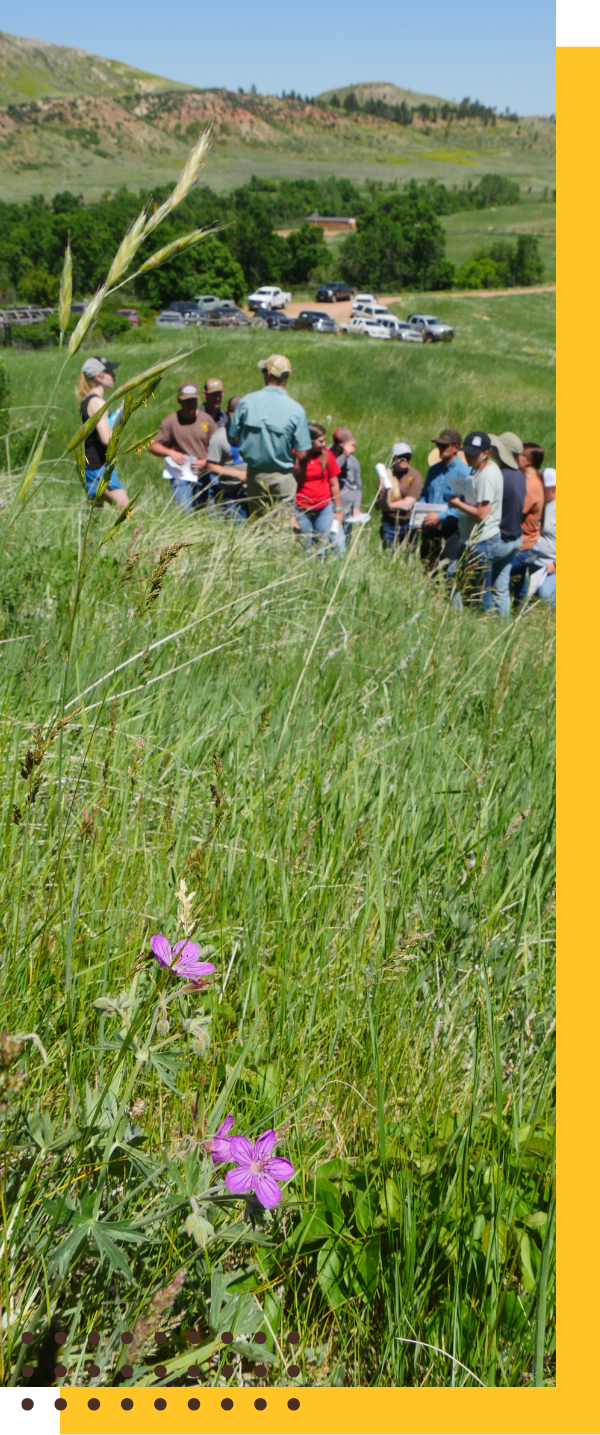
The Role of Volunteers in Extension
Volunteers contribute to the success of Extension programs throughout the state and across many of our Wyoming Impact areas. The biggest areas of volunteer support are in 4-H and our Master Gardener Program. We extend a heartfelt thank you to all volunteers who help further our mission in communities across Wyoming.
4-H has 11 volunteers who have contributed more than 50 years of service to 4-H
4-H and Master Gardener volunteers contributed the equivalent effort of 71.6 full time positions in 2024
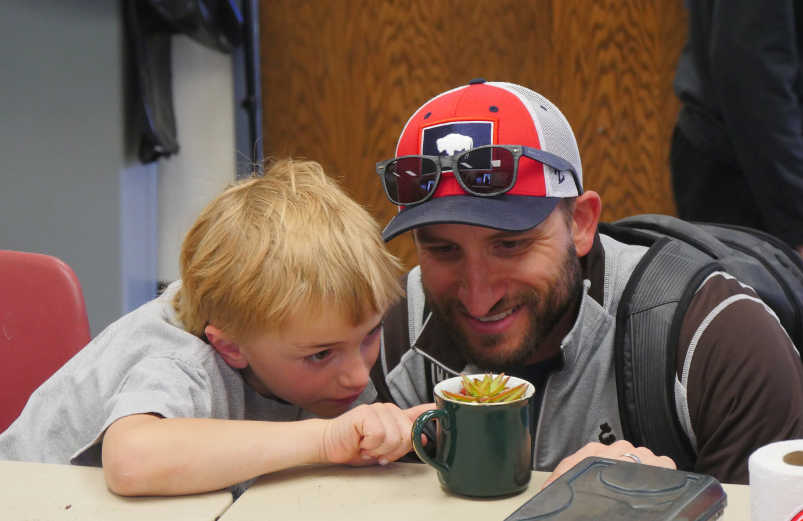
Extension by the Numbers

